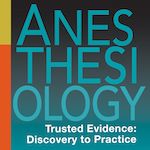Propofol anesthesia for colonoscopy could help find polyps, prevent cancer
Editor's Note
By putting the patient into deeper sedation during colonoscopy, propofol could help doctors find difficult-to-spot, potentially cancerous “serrated” polyps, according to a study published April 17 in Anesthesiology.
As an alternative to moderate, “conscious” sedation, propofol facilitates a more thorough exam that is more likely to identify serrated polyps, which tend to be flatter and blend easily into the contours of the colon tissue, researchers point out. Although other research shows propofol-based anesthesia is more efficient and improves patient and provider satisfaction ratings, this study is reportedly the first to assess whether it can help detect serrated polyps.
The study included more than 54,000 colonoscopies drawn from the New Hampshire Colonoscopy Registry and completed between 2015 and 2020 on patients older than 50 years. Rates of polyp detection, including serrated polyps and adenomas, were compared for patients receiving moderate sedation versus propofol-based anesthesia.
Overall polyp detection rates were higher with propofol (34%) than moderate sedation (24.5%). Analysis on a “restricted” sample of about 19,000 colonoscopies performed at facilities that did not predominantly use one form of sedation over the other showed similar results (30.3% polyp detection rate with propofol, 25.7% with moderate sedation). After adjusting for confounding factors in the restricted sample, propofol was still associated with a (13%) higher likelihood of serrated polyp detection.
As for why propofol might improve detection of serrated polyps, "It may be that propofol increases patient comfort and relaxation, optimizing detection of polyps that are more difficult to see," lead author Aurora N. Quaye, M.D. member of the Acute Pain and Regional Anesthesia Service at Maine Medical Center, Portland. "Additionally, propofol may cause smooth muscle relaxation in the colon, allowing more careful inspection and improved visualization."
Colorectal cancer is the second leading cause of cancer-related deaths in the U.S. and is on the rise in younger adults. Researchers emphasize that further studies are required to fully determine the possible advantages of propofol in detecting pre-cancerous polyps, adding that these results should be interpreted cautiously due to the limitations of analyzing clinical registry data.
Read More >>

 Free Daily News
Free Daily News